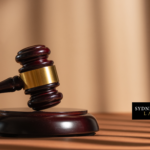Increased Powers for ASIO to Allow Access to Third Party Computers

Proposed changes to the law will potentially give the Australian Security Intelligence Organisation (ASIO) increased powers to monitor and detain alleged terrorists fighting in the Middle East as well as increased powers of cyber surveillance and disruption. These changes are being proposed as a way to increase the ability for Australian security forces to counter potential terrorist threats, particularly from Australians who are suspected to be returning after engaging in jihadist fighting or training overseas.
There have been a range of different changes proposed, including giving security forces the ability to detain suspected jihadists and prevent them returning to Australia, or to prevent them leaving if it’s suspected that they are going to fight elsewhere. It is believed that a report was prepared last year, suggesting an increase in ASIOs powers to combat the developments in technology used by terrorists but was not brought before parliament until now.
The most recent suggested changes focus on increasing the powers of ASIO to engage in digital surveillance activities as a way to track and disrupt suspected terrorist communications. The current conflict in Iraq is believed to have brought a renewed sense of urgency to law enforcement and spy agencies within Australia who fear that Australian jihadists fighting overseas may return and become a terrorist threat within Australia in the future. It is currently believed that there are up to 150 Australians fighting overseas in militant organisations.
The suspected changes to the ASIO Act include introducing the power for ASIO to access third party computers as a way to gain access to the computers of suspected jihadists. Through the proposed new system, ASIO could potentially access the computer of an associate of a suspected terrorist and through sending an email or other electronic form of communication, gain access to the computer of the main suspect (in a similar way to the techniques that hackers use).
The new powers would also give ASIO the authority to gain access to an entire network rather than just a suspected individual’s computer. Currently ASIO needs to obtain a separate warrant for each computer they want to monitor. The new legislation would dispense with a lot of red tape and free up resources and surveillance powers. ASIO would also potentially have the authority to shut down or disrupt the computer of a suspected individual in extreme cases.
Although this legislation has strong support among the government and security agencies, concerns have been raised about the rights of innocent third parties and the implications of the new powers against certain sections of the community, particularly the Muslim community in Australia.
If ASIO are given the power to target innocent third parties as a means to gain access to suspected terrorists, it hasn’t been made clear how the privacy of the individuals involved will be protected. Currently, the suggested powers are extremely broad and have the potential to be unnecessarily intrusive for innocent members of the public.
According to Victoria’s Acting Privacy Commissioner, Dr Anthony Bendall, ASIO’s suggested new powers are “characteristic of a police state,” while Australia’s Council for Civil Liberties president suggested that ASIO should be required to seek a warrant from an independent judge rather than a politician before accessing third party computers.
There is a risk that in accessing third party computers, ASIO could access sensitive information not directly related to the suspects they are investigating.
Although it is important that ASIO has the tools it needs to ensure that the risk of terrorism within Australia can be effectively countered, it is also important that the rights of Australians are protected and there is some form of regulation as to how and what data is accessed to protect the privacy of innocent third parties.






